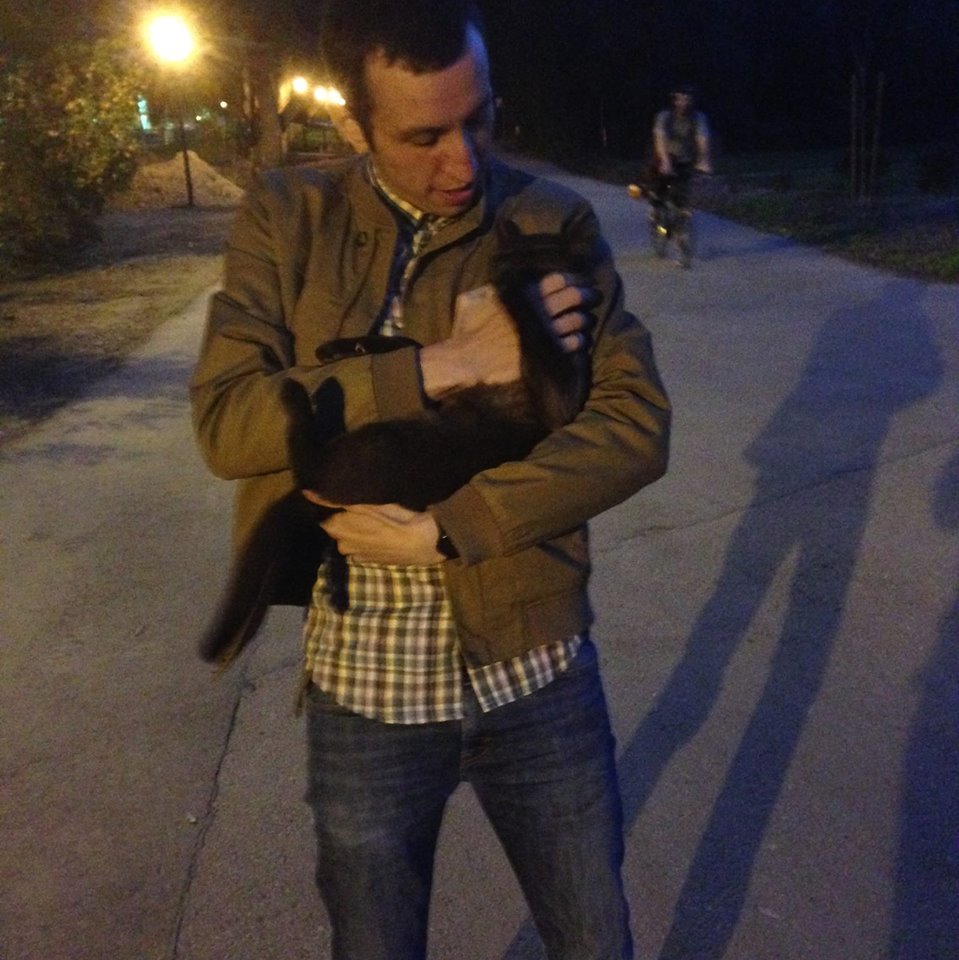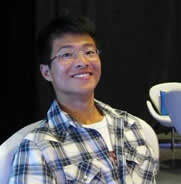Who should take this course?
This course is for you if you are interested in how to use language to construct and analyze arguments. The course has no prerequisites.
Please enter your email address below, and we will email instructions for setting a new password.
This is a self paced version of the Language, Proof, and Logic course that was offered in Fall, 2014. This version uses all of the same materials and exercises, but there is no set schedule and you are welcome to work through the material at your own pace. The course will remain available for an extended period of time. We anticipate the content will be available until at least March, 2017. You will be notified by email of any changes to content availability beforehand.
You may access the course lectures for free. However, in order to complete the course and earn a Statement of Accomplishment you must purchase the Language, Proof and Logic courseware package (including the Grade Grinder assessment service). The package contains software applications that you will use to complete exercises during the course. You will also get access to the Grade Grinder, an Internet-based assessment service for these exercises.
You can obtain the courseware package from the Language, Proof and Logic online store for $55US. You may purchase the courseware package from other online retail sites and their prices may vary. Make sure the courseware package you purchase is new (not used) and includes the software as a CD. The courseware package is required to complete the course.
The ability to reason is fundamental to human beings. Whatever the discipline or discourse it is important to be able to distinguish correct reasoning from incorrect reasoning. The consequences of incorrect reasoning can be minor, like getting lost on the way to a birthday party, or more significant, for example launching nuclear missiles at a flock of ducks, or permanently losing contact with a space craft.
The fundamental question that we will address in this course is "when does one statement necessarily follow from another" --- or in the terminology of the course, "when is one statement a logical consequence of another". This is an issue of some importance, since an answer to the question would allow us to examine an argument presented in a blog, for example, and to decide whether it really demonstrates the truth of the conclusion of the argument. Our own reasoning might also improve, since we would also be able to analyze our own arguments to see whether they really do demonstrate their conclusions.
In this course you will be introduced to the concepts and techniques used in logic. We will start right from the beginning, assuming no prior exposure to this or similar material, and progress through discussions of the proof and model theories of propositional and first-order logic.
We will proceed by giving a theory of truth, and of logical consequence, based on a formal language called FOL (the language of First-Order Logic). We adopt a formal language for making statements, since natural languages (like English, for example) are far too vague and ambiguous for us to analyze sufficiently. Armed with the formal language, we will be able to model the notions of truth, proof and consequence, among others.
While logic is technical in nature, the key concepts in the course will be developed by considering natural English statements, and we will focus the relationships between such statements and their FOL counterparts. The goal of the course is to show how natural English statements and arguments can be formalized and analyzed.
This course has no prerequisites except an interest in the way in which we use language to construct arguments and justify conclusions. If that interests you, then you're all set! Go sign up.
In order to complete the course and earn a Statement of Accomplishment you must purchase the Language, Proof and Logic courseware package (including the Grade Grinder assessment service). The package contains software applications that you will use to complete exercises during the course. You will also get access to the Grade Grinder, an Internet-based assessment service for these exercises.
You can obtain it from the Language, Proof and Logic online store for $55US. You may purchase the courseware package from other online retail sites and their prices may vary. Make sure the courseware package you purchase is new (not used) and includes the software as a CD. The courseware package is required to complete the course.
This course is for you if you are interested in how to use language to construct and analyze arguments. The course has no prerequisites.
In addition to watching highly entertaining video lectures, you will complete assignments approximately weekly, using software applications and an automated TA who will give you feedback on your progress whenever you want it.
Assessment is based on a combination of weekly assignments, and midterm and final exams. All assignments are graded automatically.
Yes. You can earn a Statement of Accomplishment if you score at least 70% on the graded assignments.
If you do not wish to earn the Statement of Accomplishment, you do not need to purchase the textbook or courseware package. However, in order to complete the course and earn a Statement of Accomplishment you must purchase the Language, Proof and Logic courseware package (including the Grade Grinder assessment service). The package contains software applications that you will use to complete exercises during the course. You will also get access to the Grade Grinder, an Internet-based assessment service for these exercises.
You can obtain it from the Language, Proof and Logic online store for $55US. You may purchase the courseware package from other online retail sites and their prices may vary. Make sure the courseware package you purchase is new (not used) and includes the software as a CD. The courseware package is required to complete the course.
No.

I'm Dave Barker-Plummer. Since 1995 I have managed the Openproof project's work on educational software for teaching logic at Stanford University. I have a background in Artificial Intelligence, and have taught computer science and logic at Stanford, Swarthmore College and Duke University. In my spare time I indulge my rock-star fantasies with PAN!C, a San Franciso based reggae/pop/jazz band.

John Etchemendy has been on the faculty of Princeton University and Stanford University where he was chairman of the Department of Philosophy and is currently Provost. He has has also served as the director of the Center for the Study of Language and Information.

I'm a third year doctoral student in Stanford's Department of Philosophy, with my research focusing on mathematical logic, philosophy of logic, and the history of analytic philosophy. I also like to think about logic pedagogy and, accordingly, am very excited to be a part of the Openproof team at CSLI. I spend my free time reading literature, watching movies, listening to music, and (with less frequency than I'd like) travelling.

I received my B.A. in Cognitive Psychology from Stanford University in June 2013. Currently I am a graduate student in the Instructional Technology & Media program at Teachers College, Columbia University. Taking logic courses was the best part of my undergraduate memories at Stanford. My interests include logic and reasoning in education; using technology to spread logic around is the coolest thing I could ever think of!

Evan Liu is a second-year undergraduate at Stanford University studying mathematics and computer science. The wide range of applications of logic - from writing analysis proofs to deciphering Kant to conversing with a friend - really excites me. My perspective of the world has entirely changed since studying logic. Besides logic, I like to spend my time playing tennis, studying chess, and baking.

Michael Murray is the lead software developer for the Openproof project, producers of the Language, Proof and Logic courseware package.

Emma Pease is in charge of operations and systems administration for the Openproof project, producers of the Language, Proof and Logic courseware package.
* By exploring the course, you are agreeing to our Terms of Service and Privacy Policy. Please read them carefully.